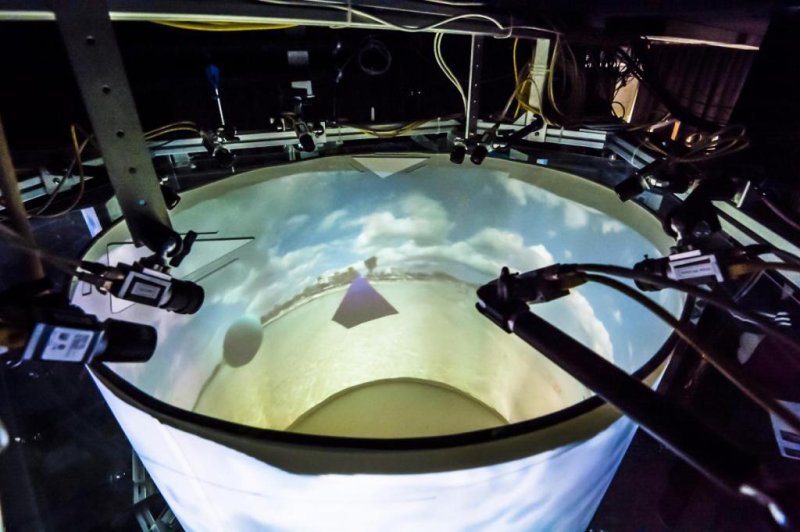Aug. 21 (UPI) -- Scientists at the University of Freiburg have developed the FreemoVR system that immerses a freely-moving animal in a 3D world to study its brain function.
The research, published today in Nature Methods, shows how FreemoVR enables researchers to control an animal's visual experience, while maintaining the natural feedback for its tactile senses.















